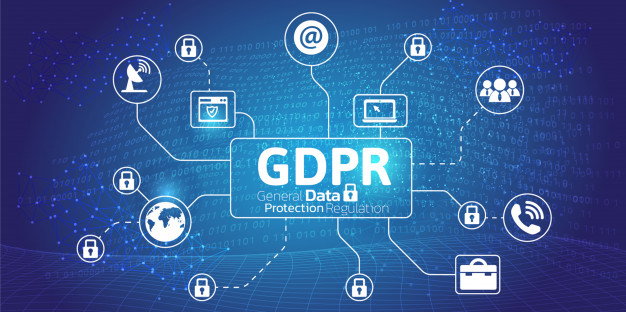5 Helpful Question About GDPR

It is estimated that by 2023, the big data analytics market will be worth $103 billion. With the rise of digital data collection methods, companies have managed to understand their markets better than ever.
Question About GDPR
Data is arguably the most valuable thing in the world at present. As a result, cybercrime and data breaches are on the rise. This has led to numerous questions on whether current regulations on data security adequately protect consumers.
To address such concerns, the European Parliament and Council passed the General Data Protection Regulation (GDPR), which seeks to protect the data of the citizens in the European Union.
1. What Does the GDPR Do?
The purpose of the General Data Protection Rule, which came into effect in May 2018, is to standardize the protection of consumer data. It requires companies to comply with strict measures of securing consumer data as well as safeguarding their privacy.
In addition, the GDPR gives consumers the option to choose whether their data is collected and the right to know what it’s being used for.
Some of the measures organizations need to comply with include:
- Seeking consent from consumers before processing data
- Making collected data anonymous for the privacy of consumers
- Handling the cross-border data transfers safely
- Notifying consumers of data breaches
You are also required to cease using or delete personal information upon a consumer’s request within 30 days.
2. Why Is GDPR Needed?
Though some of the requirements companies need to meet may seem too strict, they’re necessary. In recent years the number of data breaches has been on a steep upward trajectory.
For instance, the number of data breaches rose from 157 in 2005 to 1,579 in 2017, marking a 500% increase. This has led to increased fear among consumers about the safety of the data they share with businesses.
The primary sets of data the GDPR aims to protect are:
- Health and genetic data
- Identity information and addresses
- Biometric data
- IP address, cookie data, and other web information
- Political affiliations
- Racial or ethnic data
- Biometric data
- Sexual orientation
Over the years, data security regulation has relied on co and self-regulation by the companies collecting data as well as outdated data security laws. The GDPR takes into account the unique features of the modern data ecosystem and creates a baseline for all organizations to follow.
3. Does GDPR Apply to Me?
Any organization that operates within the European Union is required to comply with GDPR. This also applies to companies that are not based in the EU but offer products and services to their residents. Ultimately, this regulation will have a global effect as all the companies with an international presence must comply.
The GDPR classifies data handlers in two ways, the processors and the controllers. As per Article 4, a controller is an “individual, agency, public authority or any other entity which, alone or in some instances with others, directs the purpose as well as the means of the processing of personal information and data.”
It further goes on to describe a processor as a “person, public authority, agency or any other body which processes data on behalf of the controller.”
4. How Does GDPR Affect Customer Engagement?
Consumer engagement plays an integral part in developing products and services that the market wants. In this regard, GDPR handicaps businesses to some extent. This is because before you can process a consumer’s data, they must opt-in.
This applies to each unique processing activity. To opt-in, the consumer must tick a box or fill out a form and confirm their consent via email. With such requirements, there’s a risk that customers will refuse to opt-in not because they do not want to but because it may be a hassle.
Therefore, you must assess your marketing practices and come up with other ways of collecting data.
5. How to Become GDPR Compliant?
Privacy by default is the best way to kick start your GDPR compliance process. It is based on the principle that data protection in data processing is most effective when it’s integrated into the technology from the onset.
Follow these steps as you begin your compliance journey:
- Determine where all the personal data in your business comes from and what you do with it
- Keep what’s necessary and delete the rest
- Establish security measures
- Review all consent forms and documents
- Create a procedure for handling personal data
Even as you take these measures, it is equally important to ensure that your processor is compliant with GDPR. You are still liable for breaches that occur on their end.
Seize the Opportunity
Due to the heightened awareness of data security, consumers are more cautious with their data. Though these measures may be stringent, they are an opportunity to showcase your commitment to protecting customer data.
Read also:










